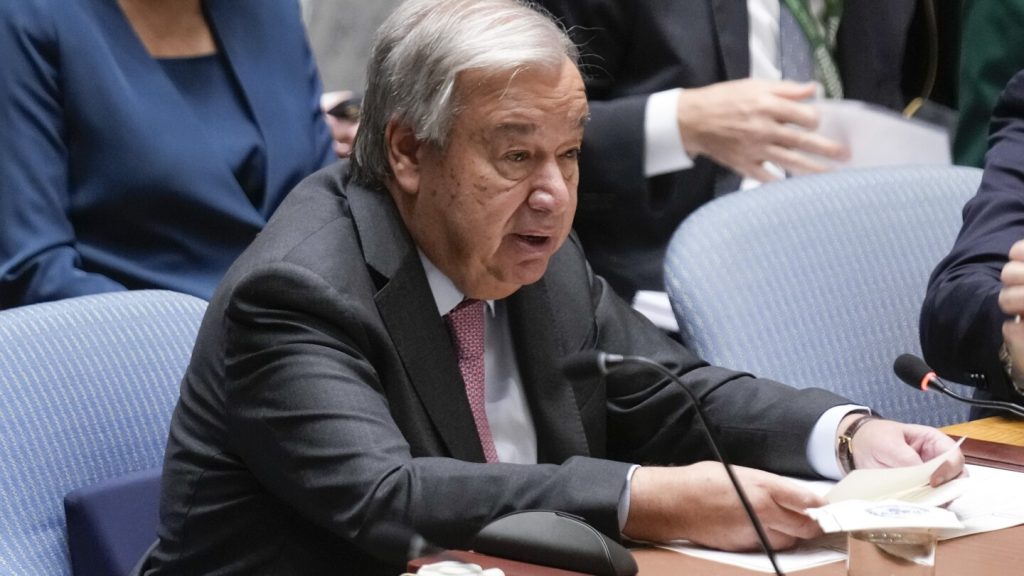More than 600 million women and girls are currently affected by war, which marks a 50% increase from a decade ago, according to top U.N. officials. U.N. Secretary-General Antonio Guterres expressed concerns about the escalating backlash against women’s rights and gender equality, stating that progress made over the years is now at risk. He highlighted the need for women’s leadership and inclusion in the pursuit of peace, pointing out that power and decision-making in peace and security matters are predominantly in the hands of men.
The U.N. report revealed alarming statistics, including a doubling of the proportion of women killed in armed conflicts in 2023 compared to the previous year, a 50% increase in U.N.-verified cases of conflict-related sexual violence, and a 35% rise in the number of girls affected by grave violations in conflicts. During a recent two-day U.N. Security Council meeting on the topic, Sima Bahous, head of UN Women, emphasized the lack of attention to women’s voices in the search for peace. She highlighted various regions where women are facing challenges, such as Afghanistan, Gaza, Sudan, Myanmar, Haiti, Congo, the Sahel region of Africa, South Sudan, Syria, Ukraine, and Yemen.
Bahous raised concerns about whether the world has forgotten the 612 million women and girls who are affected by war, amid an international community overwhelmed by crises. She called for a response of hope to address their fears, as many women in conflict-affected settings are facing food insecurity and maternal mortality remains a significant concern in conflict-affected countries. Bahous also highlighted the stagnation in women’s participation in decision-making and politics in conflict-affected countries, with less than 10% women involved in peace negotiations on average and under 20% in U.N.-led processes.
U.N. Deputy Secretary-General Amina Mohammed announced the launch of a “Common Pledge on Women’s Participation in Peace Processes” during the council meeting, urging governments, regional organizations, and mediators to take concrete steps towards increasing women’s involvement in peace processes. The pledge includes commitments to appoint women as lead mediators and team members, promote direct and meaningful participation of women in peace processes, and consult women leaders throughout the stages of peace negotiations. Mohammed emphasized the importance of embedding women with expertise to foster gender-responsive peace processes and agreements.
Several U.N. ambassadors echoed concerns about the lack of political will to promote women’s involvement in peace processes. Panama’s U.N. Ambassador Eloy Alfaro de Alba highlighted how the lack of political will impedes the full implementation of commitments made by member states. The discussions at the Security Council meeting shed light on the challenges faced by women in conflict-affected regions and the urgent need to prioritize their voices and participation in peacebuilding efforts. The international community is called upon to take concrete actions to address the increasing impact of war on women and girls and work towards achieving gender equality in peace and security initiatives.















